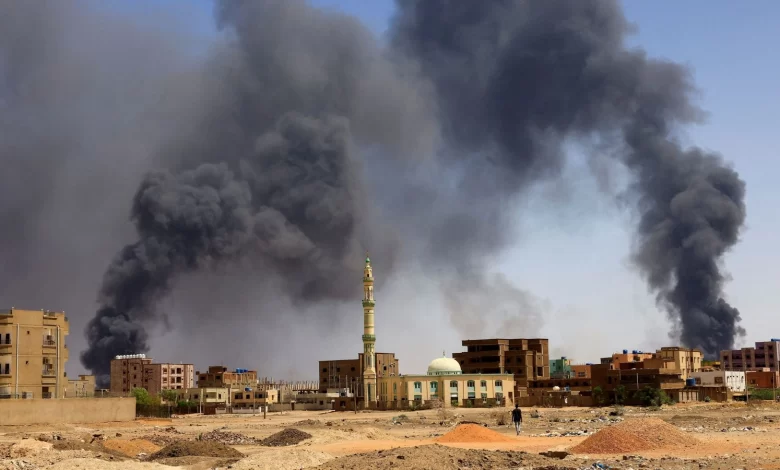Sudan conflict parties commit to protecting civilians without signing a ceasefire

Sudan’s two sides committed early to protecting civilians and providing humanitarian aid but failed to agree on a ceasefire and remain far apart, according to US officials.
“After week-long talks in the Saudi port city of Jeddah, the Sudanese military and the RSF signed a declaration that they would work together for a short-term ceasefire during further talks, the officials said.”
“The two sides are very far apart,” a senior State Department official said on condition of anonymity.
The declaration, issued after the talks, said the two sides committed to “prioritizing discussions to achieve a short-term ceasefire to facilitate the delivery of emergency humanitarian assistance and the restoration of basic services.”
A State Department statement said the two sides will focus on reaching an effective cease-fire agreement for about 10 days.
The senior U.S. official said negotiators working with Saudi and U.S. mediators would then discuss specific security measures to protect humanitarian supplies.
The measures “will include a mechanism to monitor the ceasefire supported by the United States, Saudi Arabia, and the international community,” the Foreign Ministry statement said.
Saudi Foreign Minister Prince Faisal bin Farhan said on Twitter that the talks and the commitment to protect civilians “come as a first step, and other steps will follow.”
“The most important thing is to abide by what has been agreed upon, and the kingdom will work so that security and stability will return to Sudan and its brotherly people,” he added.
In their agreement, the Sudanese military and the RSF also committed to “scheduling subsequent extended discussions to achieve a permanent cessation of hostilities.”
Sudan’s Umma Party published details of the agreement on its Facebook page. The main concern is to “distinguish at all times between civilians and combatants, between civilian objects and military objectives, and to refrain from any attack that is expected to cause incidental civilian harm, which is excessive compared to the concrete and direct military advantage anticipated.”
It also provides for “taking all feasible precautions to avoid and minimize harm to civilians, to evacuate urban centers, including civilian residences, for example, and avoiding the use of civilians as human shields.”
Moving from a temporary cease-fire, when agreed, to a permanent cessation of hostilities will be a long process, the U.S. official said. But Washington hopes that the parties’ agreement to sign the declaration on Friday will increase momentum.
Civilian groups were expected to participate later in the talks.
The Coalition of the Forces of the Declaration of Freedom and Change, made up of civil parties that support democratic governance, called the announcement “an important first step towards ending the war in the country” and urged both sides to abide by it.
Clashes rocked El Halfaya, one of the entrances to Khartoum, on Thursday, with residents hearing the buzzing sound of warplanes overflying the capital and the nearby towns of Bahri and Omdurman, although the fighting appeared to be calmer than it had been on Wednesday.
Neither side has publicly shown a willingness to make concessions to end a conflict that suddenly erupted last month and threatens to plunge Sudan into civil war. The fighting has claimed hundreds of lives and caused a humanitarian crisis.
“Previous truces have been repeatedly violated, with civilians facing terrifying conditions of chaos, bombardment, power and water cuts, food shortages, and a collapsing health system.”
A proper burial for the dead
The announcement, signed early Friday, aims to improve the flow of humanitarian aid and begin restoring water and electricity services, the senior State Department official said.
Mediators hope “the withdrawal of security forces from hospitals and clinics can be arranged, and the dead can be buried properly”, he said.
More than 600 people have been killed in Sudan and more than 5,000 have been wounded in the fighting, according to the World Health Organization. The Health Ministry said at least 450 people had died in the western Darfur region.
“Many have fled Khartoum and Darfur, and the fighting has displaced 700,000 internally and sent 150,000 refugees into neighboring countries, according to UN figures.”
Western countries condemned the abuses committed by both sides at a Human Rights Council meeting in Geneva, but Sudan’s ambassador said the conflict was an “internal matter”.












